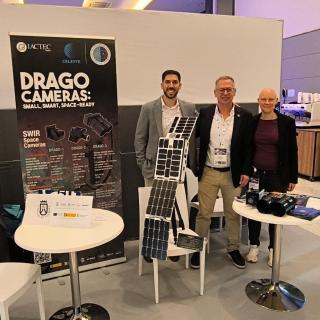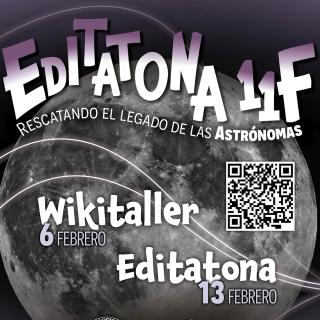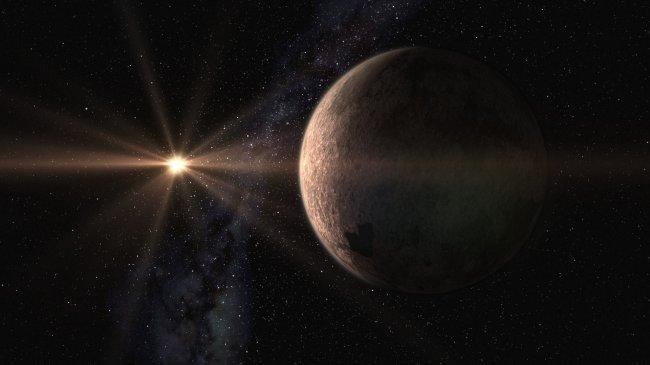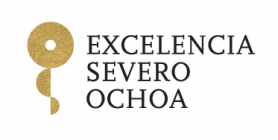It may interest you
-
 The team from IACTEC Espacio, the department of the Instituto de Astrofísica de Canarias (IAC) dedicated to developing space technology for small satellites, is taking part this week in the Small Satellites & Services International Forum (SSSIF) 2026, held from 17 to 19 February in Málaga. In this seventh edition, the international forum consolidates itself as one of the main meeting points for the small satellite sector, under the motto “Secure Communications & Other Dual Technologies.” IACTEC Espacio is participating as an exhibitor with its own stand, where it presents its mainAdvertised on
The team from IACTEC Espacio, the department of the Instituto de Astrofísica de Canarias (IAC) dedicated to developing space technology for small satellites, is taking part this week in the Small Satellites & Services International Forum (SSSIF) 2026, held from 17 to 19 February in Málaga. In this seventh edition, the international forum consolidates itself as one of the main meeting points for the small satellite sector, under the motto “Secure Communications & Other Dual Technologies.” IACTEC Espacio is participating as an exhibitor with its own stand, where it presents its mainAdvertised on -
 The Instituto de Astrofísica de Canarias (IAC) has opened the application period for the XXXVI Canary Islands Winter School of Astrophysics , which will be held from 17 to 22 November 2025. This edition is carried out in the framework of the CELESTE (Centre for Optical and Space Technologies of the IAC) programme funded by the European Union and will focus on key optical technologies for astronomy, a field that is driving 21st century discoveries about the universe. Applications will be accepted until Friday, 13 June. The IAC’s Winter School is renowned for its educational approach andAdvertised on
The Instituto de Astrofísica de Canarias (IAC) has opened the application period for the XXXVI Canary Islands Winter School of Astrophysics , which will be held from 17 to 22 November 2025. This edition is carried out in the framework of the CELESTE (Centre for Optical and Space Technologies of the IAC) programme funded by the European Union and will focus on key optical technologies for astronomy, a field that is driving 21st century discoveries about the universe. Applications will be accepted until Friday, 13 June. The IAC’s Winter School is renowned for its educational approach andAdvertised on -
 The Instituto de Astrofísica de Canarias (IAC) and Wikimedia Spain are organising, on the occasion of the International Day of Women and Girls in Science, a Wikipedia editing workshop and an edit-a-thon of biographies of female astronomers and astrophysicists, an initiative that seeks to highlight the talent of women in the field of astronomy and astrophysics and contribute to reducing existing content gaps in the free encyclopaedia. The proposal is divided into two complementary days, designed to facilitate participation by anyone, regardless of their level of prior knowledge about editingAdvertised on
The Instituto de Astrofísica de Canarias (IAC) and Wikimedia Spain are organising, on the occasion of the International Day of Women and Girls in Science, a Wikipedia editing workshop and an edit-a-thon of biographies of female astronomers and astrophysicists, an initiative that seeks to highlight the talent of women in the field of astronomy and astrophysics and contribute to reducing existing content gaps in the free encyclopaedia. The proposal is divided into two complementary days, designed to facilitate participation by anyone, regardless of their level of prior knowledge about editingAdvertised on

